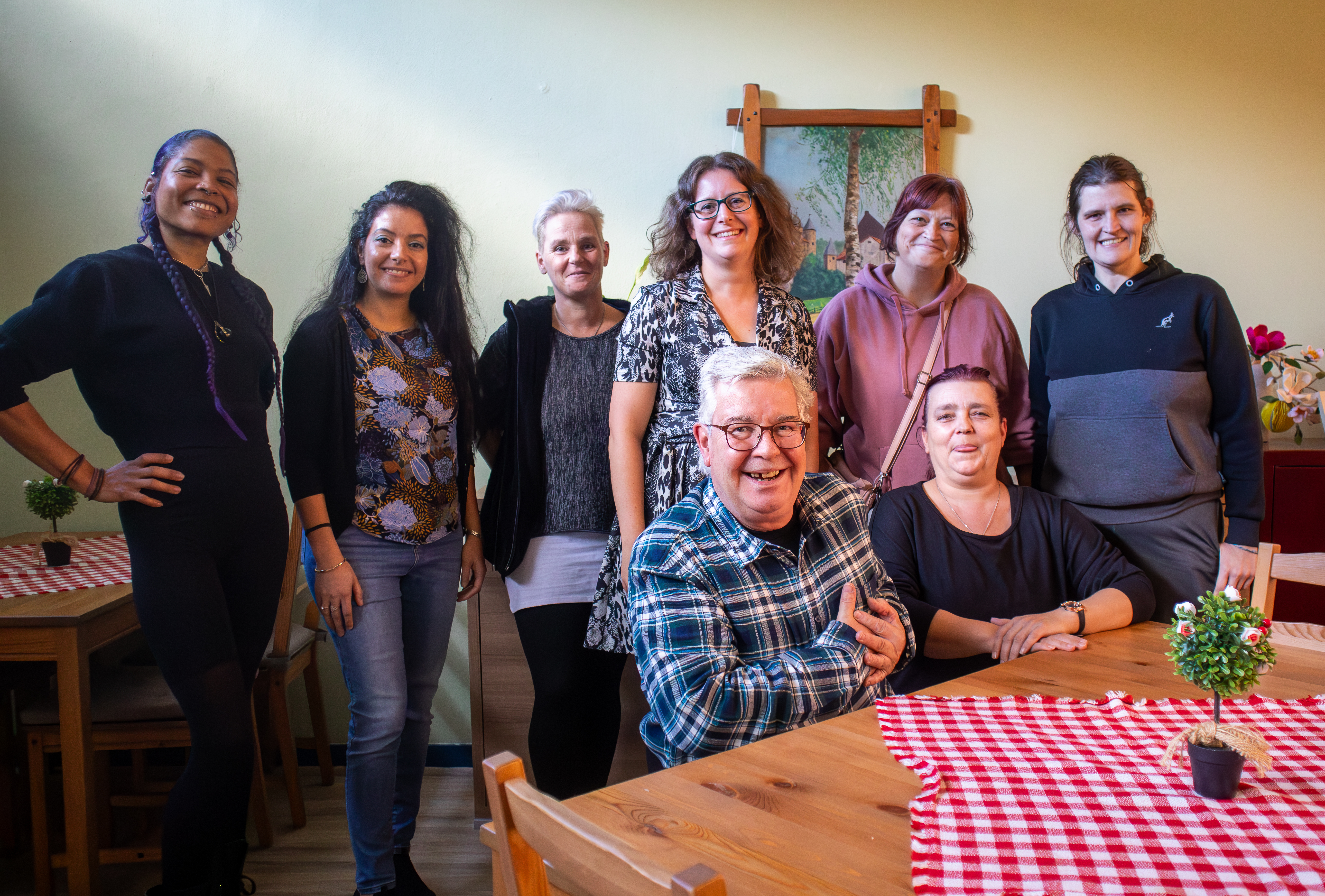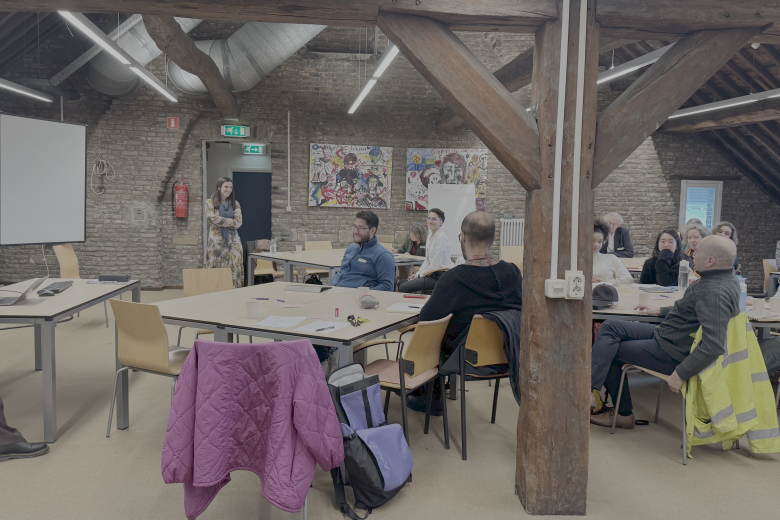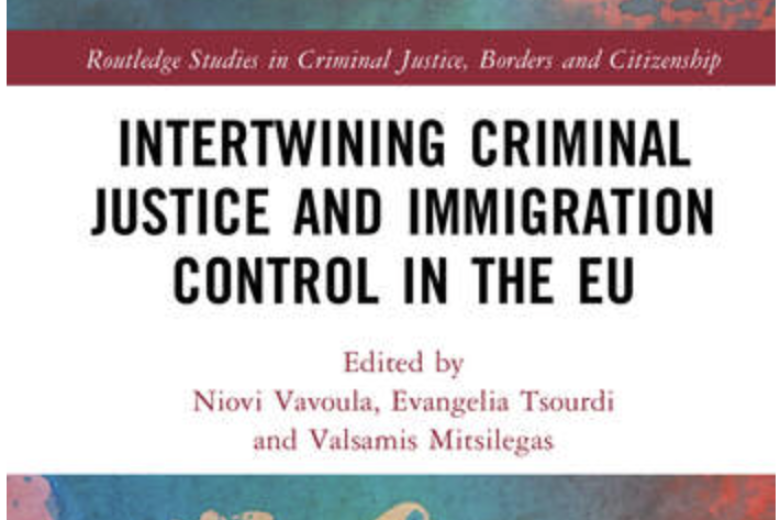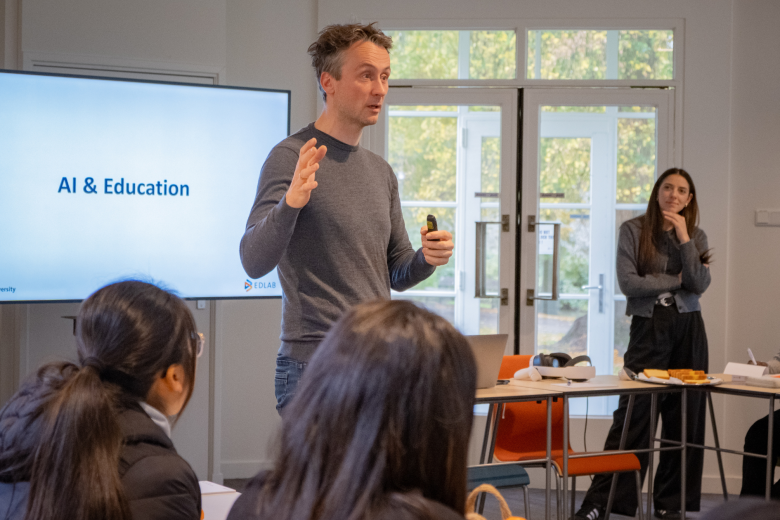Unwealthy, unhealthy – the long shadow of financial strain
CAPHRI’s Latifa Abidi and Gera Nagelhout study intergenerational transmission of socioeconomic problems and health disparities. The central question is how exactly your parents’ financial difficulties leave you unhealthier and less likely to progress in life. To contribute to a fairer society, they turn to citizen-science. They organise and participate in focus groups to look beyond the numbers at the individuals affected.
It’s not just about money. Like Fafner in Wagner’s Ring or that splendid Phrygian king, being overly focused on gold can leave one blind to the bigger picture and avertable tragedy… If you didn’t quite get that, you might be short on cultural capital. Not much of a problem really. But if that phrase had been articulated in a social setting and everyone but you had uttered a self-satisfied chuckle, you might feel like you don’t belong there. And that is a problem. Your parents’ financial and sociocultural situation, level of education, and many other factors will have a serious impact on your wellbeing.
Latifa Abidi and Gera Nagelhout study the intergenerational transmission of socioeconomic problems and health disparities. In very simple terms: do poor parents mean unhealthy children? Right off the bat, they are keen to stress that the most obvious and quantifiable indicator, money, can often be misleading. “We operate a very broad definition of socioeconomic difficulties, so not just poverty but difficulties to make ends meet,” explains Abidi.
Nagelhout adds that, in any case, government definitions of poverty are mostly based on income, “but that doesn’t tell the whole story. If people have a chronic disease for example, all of their resources might be drained by medical expenses. They don’t meet the criteria for poverty but face the same issues.”
From poor to poor health
Income-based criteria for poverty ignore debt, family size, expenses and inflation. “The rise in energy costs, especially of heating, disproportionally affects the poorest, who might live in badly insulated houses,” Nagelhout explains. “They either have to prioritise heating and forfeit a healthy diet, or turn off the heating and run the risk of chronic diseases worsening as a result of the cold.” Downsizing, that is to say moving to a smaller home to save on monthly expenses, is no longer a widely available option with a national housing shortage and skyrocketing rents.
Financial stress inevitably leads to emotional and physiological stress. “The research shows clearly that chronic stress, is very detrimental to your health,” says Abidi. Evidence of direct causation is increasing, but it might also be attempts to self-soothe, for example through alcohol, tobacco and fast food, that cause the noticeably worse health outcomes of those under financial strain. Nagelhout adds that “those unhealthy behaviours can have a direct negative influence on the next generation during early development – but they are also passed on to them as habits.”
Das social Kapital
Education is one way out of poverty, but here too intergenerational disadvantages are insidious. As Nagelhout points out, “money can buy you things, also opportunity.” While money in the form of private tutoring and an ideal learning environment certainly makes a big difference, so does the social capital. By that, we mean the network, knowledge, skills, taste and social codes that come with belonging to a certain social class – mostly correlated with, but not determined by a family’s financial situation.
Social capital can be a way into certain groups but also, as illustrated above, a tool of exclusion. This Abidi understands beyond the research literature. “My parents came to the Netherlands in 1977 with only two suitcases and my older brother. They had to build their lives from scratch with little money.” She grew up in Buchten with financial difficulties. “I remember the other children at school having branded clothes and gadgets while I was wearing the clothes my mother had made. They were beautiful clothes but, nevertheless, I did feel different.”
That might seem innocuous enough to the casually unsympathetic, but Abidi was confronted with more explicit impediments too. “I was always curious and wanted to learn more, but the teacher said that, since my parents hadn’t studied, it was unlikely that I would. I was sent to a secondary school where I wasn’t really challenged. There certainly were barriers on my way to studying.” Nagelhout points out that being referred to a lower educational level as a result of socioeconomic prejudice and disadvantage rather than academic underperformance is a trend also borne out by their research.
“If you want to create recommendations that make a difference, you have to develop them together with people they are intended for so you can be sure they make sense in practice.”
Gera NagelhoutMeritocrat-ish
“The Netherlands likes to see itself as a very egalitarian meritocracy,” explains Nagelhout, “but that’s not what the research suggests. More often than not, history repeats itself and children can’t escape their parents’ socioeconomic difficulties.” In her childhood there were periods of financial stress in her nuclear family, even though they wouldn’t fall under any official definition of poverty. Being the first in her family to study, there was a sense of not really belonging among those for whom a university education was a matter of course. “Suddenly, I was surrounded by people who knew things about poetry, classical music and certain types of holiday destinations. I had to either pretend I was familiar with these things or admit to being different.”
Nagelhout also points to the financial burden of studying. While the Netherlands government has gone back to offering study grants, these don’t even cover the cost of housing. Extra loans are necessary – on top of having no or very little income for at least three years. A likely result of financial stress growing up is a fear of debt. Unable to rely on their parents to finance their studies and reluctant to go into debt in the hope of following a path of academic education that hasn’t been modelled to them, children from socioeconomically troubled backgrounds might be too daunted to pursue higher education. Abidi concedes that receiving the study grant allowed to pursue an academic education without fear of falling into debt.
Text continues below the photo.

Understanding a complex problem
The backgrounds of the researchers is germane to both the topic and the method of their research. “It will be a literature review, and we will supplement it with qualitative research to better understand our findings and the underlying mechanisms,” explains Abidi. “We will conduct a series of focus group interviews.” Both of them and their mothers will also participate in the groups.
Abidi and Nagelhout will organise 8 focus groups with 8 to 12 participants each. They will be made up of intergenerational pairs of those affected by socioeconomic problems, as well as policy makers, health professionals and social workers. “If you want to create recommendations that make a difference, you have to develop them together with people they are intended for so you can be sure they make sense in practice,” says Nagelhout.
Researchers among citizen-scientists
Joining as co-participants sounds potentially awkward, but Abidi and Nagelhout like to encounter research participants as equals. “We have been working with a group of people with socioeconomic difficulties for three years now; we meet up with them regularly in a community centre in Maastricht. We have learnt so much by listening to them and involving them in the research. We see them as citizen-scientists and they contribute a lot,” explains Abidi. “We have noticed that, if we open up about our own experiences and are vulnerable ourselves, we learn a lot more.”
“People feel more at ease,” says Nagelhout, “and that makes it easier to get to the real story, to the causalities that numbers or even surveys and interviews won’t reveal. It also allows us to tailor our research to answering the questions that make a difference to their lives. For example, we were struck by how important access to health care is and how, often, they feel like they aren’t taken seriously.” Abidi adds that this advisory group also helped them recruit participants for their focus groups, both through their network and input regarding the communication materials.
“It’s an intergenerational problem that’s hardly ever studied as such, so we think this is a very useful approach,” Nagelhout concludes. “Statistics are really important but we shouldn’t lose sight of the people behind the numbers. It’s really hard to understand what it’s like if you haven’t experienced it.”
Text: Florian Raith
Photography: Domonkos (Doma) Barkovits
“We have noticed that, if we open up about our own experiences and are vulnerable ourselves, we learn a lot more.”
Latifa AbidiAlso read
-
'De-composing Classical Music’ event was a success
On 13 October 2025, the Maastricht Centre for the Innovation of Classical Music hosted the event ‘De-composing Classical Music: Coloniality and Resistance’ at the Faculty of Arts and Social Sciences in Maastricht.

-
Co-edited collective volume by MCEL member Lilian Tsourdi on the intertwinement between criminal justice and immigration control
The new volume offers a contemporary understanding of the state of the art of ‘crimmigration’ with a focus on the European Union and challenges this paradigm of intersecting criminal justice and immigration control.

-
UWC Maastricht students get a taste of education innovation at EDLAB
On 21 October 2025, EDLAB hosted students from United World College Maastricht for the second year in a row, as part of their Youth Social Entrepreneurship programme.
